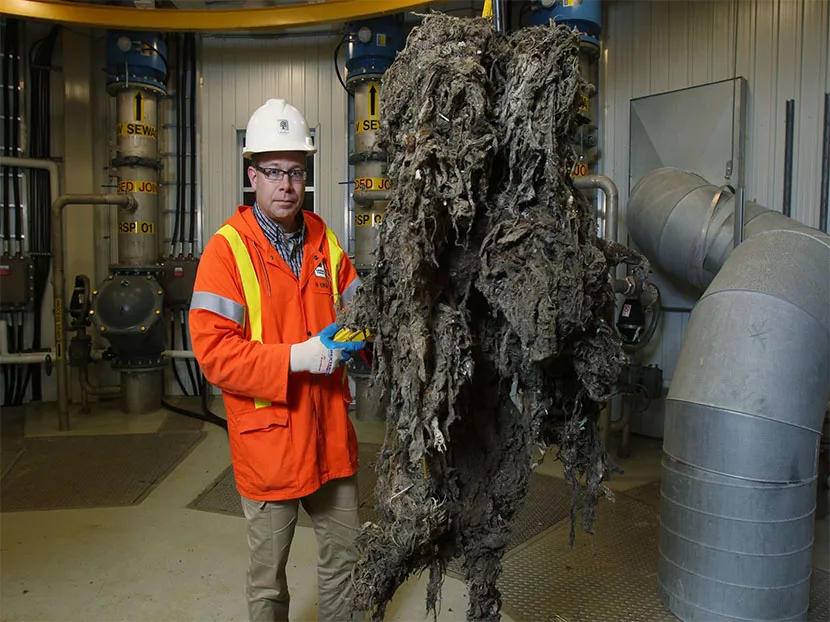Ryerson University released a new report on the first ever test of single-use wipes against rigorous criteria for flushability. The report, entitled Defining ”Flushability” for Sewer Use, comes out of Ryerson’s Flushability Lab at Ryerson Urban Water, and includes the testing of 101 single-use products, of which 23 being labeled as “flushable” by the manufacturer. Results showed that not one single wipe was able to fall apart or disperse safely through the sewer system test, which can negatively impact household plumbing, municipal sewage infrastructure, and consequently, the environment.
“This research confirms conclusively what those of us in the industry already knew―that single-use wipes, including cleansing and diaper wipes, cannot be safely flushed, even those labelled as ‘flushable,’” said report lead Barry Orr, masters student in Environmental Applied Science and Management, and a 25-year veteran Sewer Outreach and Control Inspector with the City of London. “Manufacturers need to be regulated to properly label products, so that residents can make informed decisions that can save money, protect infrastructure and the environment by properly disposing of wipes in the garbage.”
To test the flushability of the samples, the researchers created a working model of the average home’s lavatory system from toilet to sewer, including the bends and slope, plus average water pressure typical of urban infrastructure. Each wipe was then tested to the wastewater industries specifications for toilet and drainline clearance plus disintegration. The report findings showed that none of the wipe samples fell apart or dispersed enough to safely pass through the sewer system without a risk of clogging or causing damage to infrastructure.
Improper disposal of these single-use products has huge impacts not only on individual residences, but also on municipalities. From 2010 to 2018 the City of Toronto logged nearly 10,000 calls per year from residences due to “sewer service line-blocks” relating to factors such as disposal of non-flushable materials down household toilets. In addition, the Municipal Enforcement Sewer Use Group has estimated that $250 million is spent annually across Canada for operations and maintenance related to the removal of blockages from equipment, due to the flushing of wipes and other non-flushable materials. Many of these wipes also contain synthetic fibres, including plastics, which can make their way into waterways, harming water systems and wildlife. This occurs most often when clogged municipal infrastructure leads to overflows and spillage into local waterways.
“The report clearly highlights the need for a legislated standard definition around the term ‘flushable,’ that ensures a product is safe to be disposed of down the toilet,” said Orr. “This will in turn lead to imposing stricter regulations for the labelling of products. The current practice is misleading consumers and creating harm on so many levels. This study is an important step towards regulating manufacturers to change their packaging.”
Barry Orr’s research was supervised by Darko Joksimovic, associate professor in the Department of Civil Engineering. The Ryerson Flushability Lab forms part of Ryerson Urban Water, housed at the Centre for Urban Innovation. Ryerson Urban Water is a multi-disciplinary collective of experts whose research provides cost-effective solutions that support a healthy urban water cycle while promoting innovation in water education across societal boundaries.
“This important new research out of Ryerson Urban Water exemplifies the unintended consequences that can result from everyday actions taken by individuals and organizations,” added Nick Reid, executive director of Ryerson Urban Water. “Healthy cities depend on healthy urban water strategies, and we all play a vital role in this very delicate ecosystem.”





